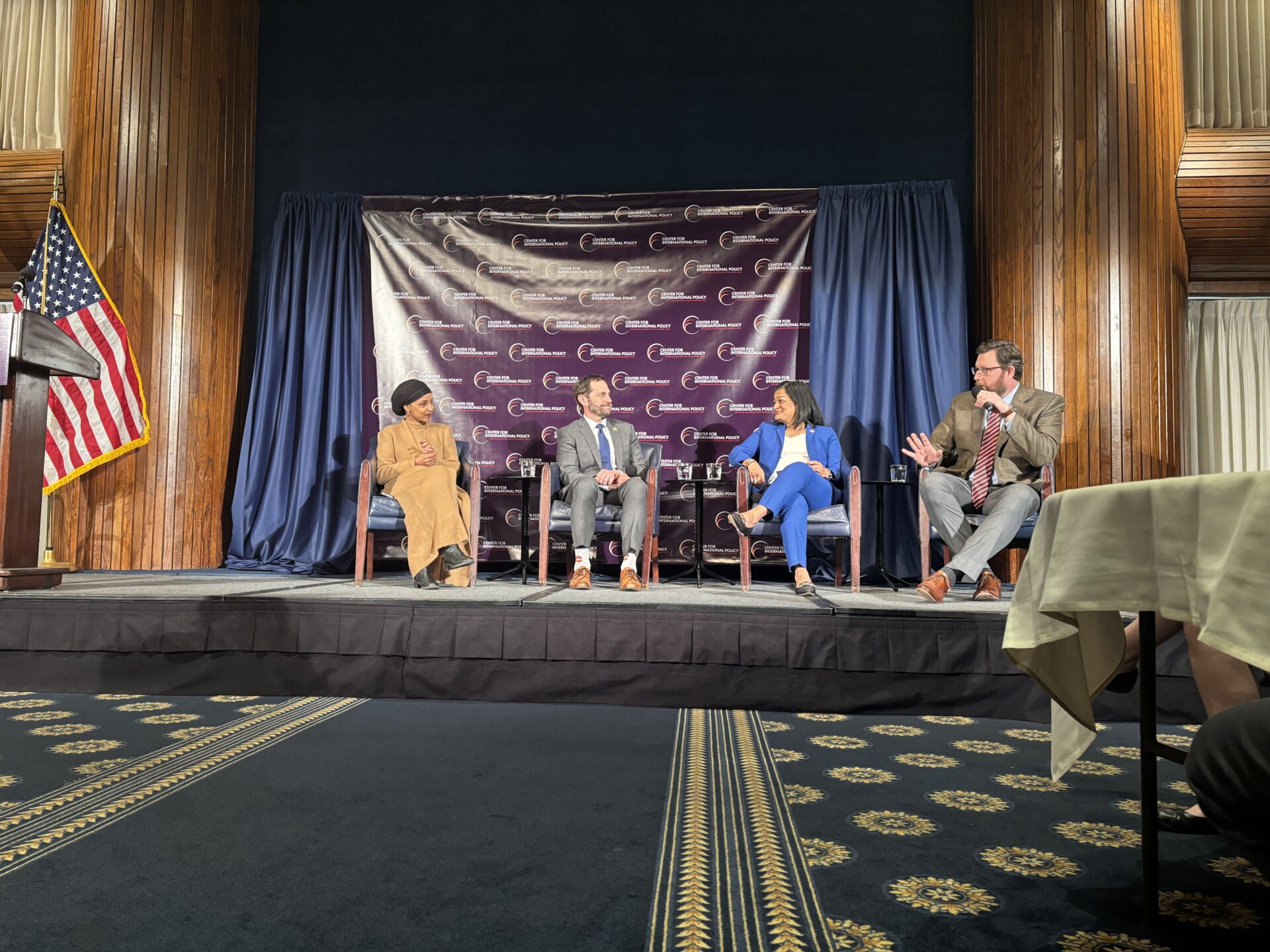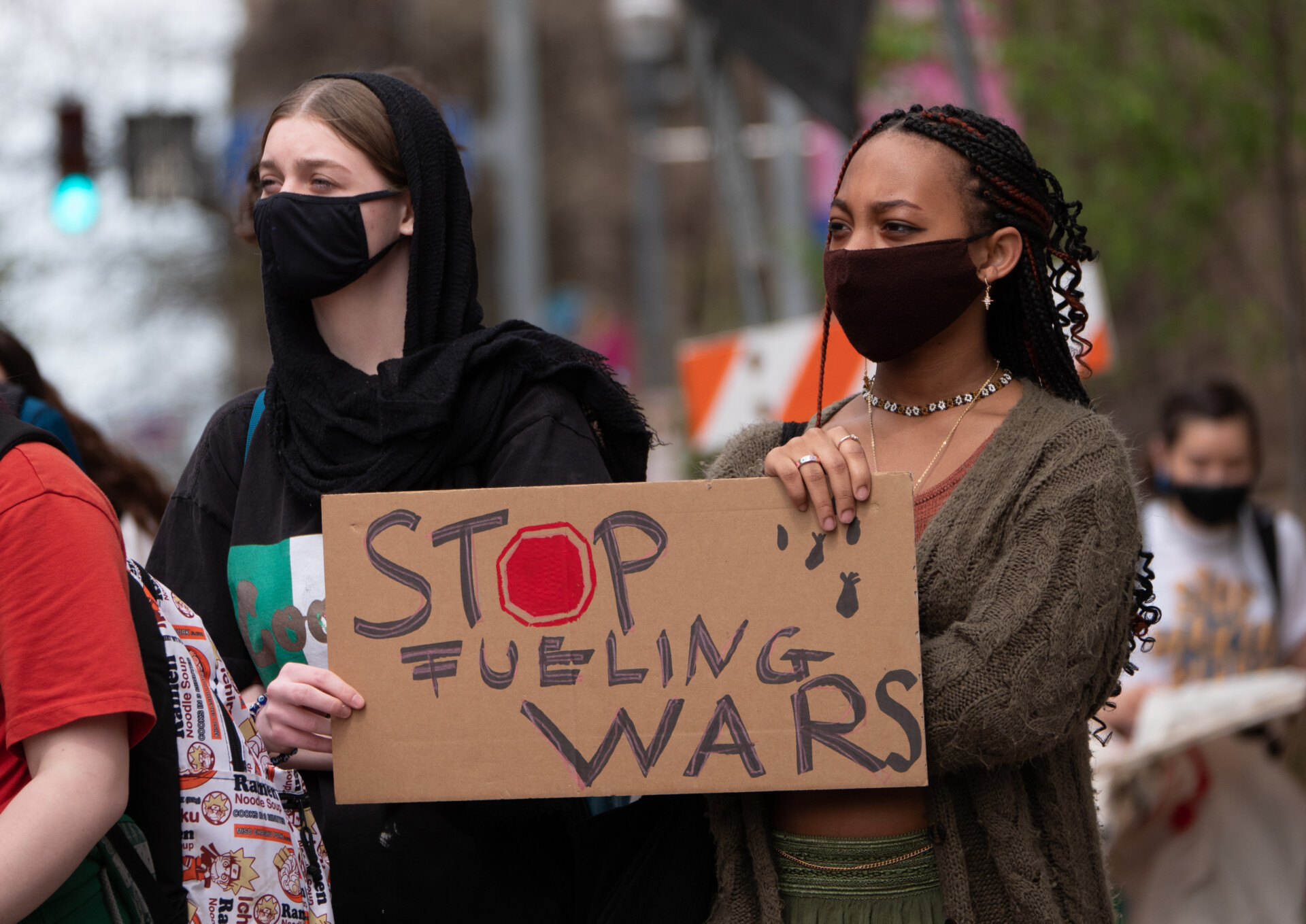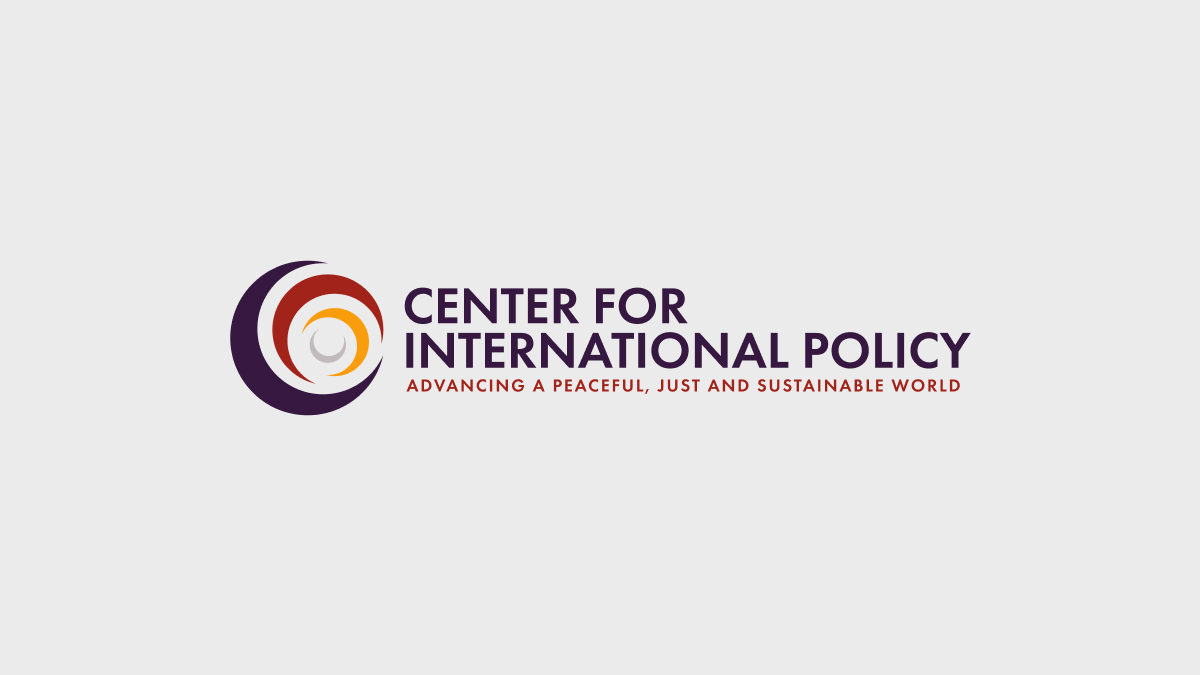
Lawmakers, Progressive Leaders Urge Reorientation of Foreign Policy as a 2024 Imperative
On February 6, Members of Congress and progressive movement leaders gathered at a conference hosted by the Center for International Policy (CIP), demanding changes to US foreign policy decisions as a necessity in a consequential year that will determine the trajectory of the US both at home and globally.
In a keynote address seen by over 60,000 people, Senator Bernie Sanders (I-VT) argued that the concentration of wealth and power foments war, violence and mass insecurity for everyday people globally, benefiting billionaires at the expense of whole families, nations, peoples and regions and declared that, “For many decades we have seen a ‘bipartisan consensus’ on foreign policy—a consensus which, sadly, has almost always been wrong.”
Pointing to the distorting influence of moneyed forces ranging from AIPAC, super PACs, big defense contractors, fossil fuel companies, pharmaceutical companies, oligarchs supporting Putin, Trump and other autocrats, and other multi-billionaires and multinational corporations; as well as the growth of right-wing extremism, tax havens and economic inequality, Senator Sanders declared, “It’s hard to overstate just how fundamentally this broken global financial system undermines faith in democracy and saps our ability to deal with the pressing crises we face today.”
“We live in a world where a small number of multi-billionaires and multinational corporations exert enormous economic and political power over virtually every country on earth,” added Sanders. “That reality has a huge impact on all aspects of our foreign policy and whether or not we will be able to effectively address the major crises we face.”
In a “Congress and Progressive Foreign Policy” session, Members of Congress discussed their personal pathways to foreign policy and outlined key challenges and opportunities for a “people-centered national security” that delivers for people in the US and the Global South, recognizes the interdependence of domestic and foreign policy on issues like migration and climate change, and allows the outside world to interact with the US in positive ways like refugee resettlement rather than negative, militarized interactions.
“Nowadays, most people are interacting with the United States through drones, through weapons that are made in the US that are in the hands of dictators, police or their military, or they’re interacting with us in regards to sanctions that are making it hard for them to have necessary medication and food. And that creates a national security problem for us,” said Representative Ilhan Omar (D-MN).
“We’ve spent more on border security since 2013 than was in the immigration reform bill of 2013. And we’ve seen no improvement in anything because we haven’t fundamentally shifted the system. So we have to think about, how do we invest in other countries? Our foreign policy is directly tied to this,” added Representative Pramila Jayapal (D-WA).
“What I would like to see is a people-centered security, where the United States can actually engage with people of a nation, and help empower them, help them pursue freedom and dignity on their terms, not necessarily our terms,” concluded Representative Jason Crow (D-CO).
In “Prioritizing a Progressive Foreign Policy Agenda,” regional experts discussed strategies for the US to reorient its relations to better serve the people and address the realities and needs on the ground. Speaking to the pitfalls of Great Power Competition and the Cold War as frameworks for US-China relations, China expert Ali Wyne declared, “Diplomacy is not something that you do out of kindness to competitors. It’s something that you do to advance your own national interest.” “We can’t support a progressive movement in Ukraine if they’re dead,” emphasized Terrell Jermaine Starr. Speaking on Latin America, María José Espinosa Carillo stressed, “We have deep connections with the region, not only through our borders, but also through funding and economic ties. But what’s more important, there is a renewed vision of the region.”
In “The Political Necessity of a New Foreign Policy,” movement leaders from MoveOn, Center for American Progress, AFL-CIO and Win Without War explored the intersection of domestic and foreign affairs, offering their analysis of policy tradeoffs and highlighting how they see these issues moving the progressive base.
“That [progressive foreign policy] actually is not just a morally and ethical position, but it is an electorally salient one, one that is a winning position in elections,” declared MoveOn executive director Rahna Epting. “With Biden, he campaigned in 2020 promising to end endless wars, and that helped him win. That was one of the reasons I believe helped him win in that election cycle. And now we see Donald Trump poised to exploit the current situation in Israel Gaza and how that’s going to show up in November.”
Center for American Progress president and CEO Patrick Gaspard described the threat of antidemocratic forces at home and abroad, and said, “We’re now in a place of the world where you win votes by arguing that you build a moat around yourselves and pull up the drawbridge, our progressive transnationalism, internationalism is not actually ascendant. We should recognize that and we should fight fiercely.”
This fight for democracy at home and abroad takes place not just at the ballot box but in workplaces too. Cathy Feingold, International Director for the AFL-CIO, argued we must recast our priorities in favor of “ worker-centered security,” explaining, “It sends a very specific message to people in this country and around the world who are working day in and day out and want to make sure that they can live with dignity. I have found that workers here and workers around the world are interconnected.”
Win Without War executive director Sara Haghdoosti added, “We talk about foreign policy like there are not people in this country who have family connections, and deep commitment to what happens around the world. And it’s just not okay. That’s not how people work.”
View all the key moments from the conference on YouTube here and read opening remarks from CIP president and CEO Nancy Okail here.


